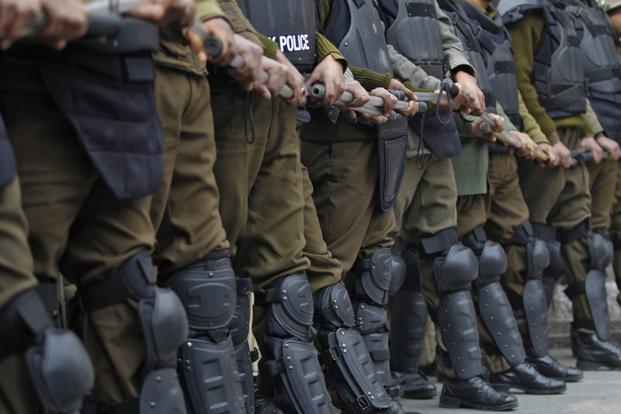 It was Good Friday on April 6 in 2007. A holiday, and Renu Takhelabam’s husband had driven out on his scooter to a local market. Hours passed and he did not return. Renu grew anxious, their nine-month-old son bawled.
It was Good Friday on April 6 in 2007. A holiday, and Renu Takhelabam’s husband had driven out on his scooter to a local market. Hours passed and he did not return. Renu grew anxious, their nine-month-old son bawled.
Meanwhile, Mung Hangzo’s corpse lay unattended in a local hospital. Hangzo’s death had become another statistic in the decades-old separatist insurgency in Manipur where security forces are armed with a law, even older than the insurgency, which gives them wide powers to raid homes, detain suspects and even kill on grounds of public order.
Earlier this month while the Indian government was defending the Armed Forces (Special Powers) Act (AFSPA) at a United Nation’s forum, Renu and other Manipuri widows were busy — on the Supreme Court’s order — documenting cases of 1,528 men, women, and children all victims of extra-judicial killings or “fake encounters”.
An imprint was also left by a singular protest by 12 ‘imas’ (mothers), who undressed themselves in front of the Kangla Fort in Manipur’s capital Imphal in 2004, holding aloft a banner reading “Indian Army Rape Us” against the killing and rape of a young girl, Thangjam Manorama.
But unnoticed in the campaign are activists such as Renu and Edina Yaikhom, the widowed foot soldiers of the movement, all in their 30s, who lost their husbands about 10 years ago. These women have been quietly marching on against all odds, debilitating diseases and inner demons a journey marked by few triumphs and numerous setbacks.
In 2008, one July evening, Edina sat restless, waiting for her cabbie husband to return. He was usually home before dark. In a few hours, a few relatives walked in, wearing whites, the colour of mourning. Edina went blank and collapsed, the sudden trauma of her husband’s death leaving her partially paralysed.
A year later, in another part of the state, Neena Ningombam’s husband had gone out for a stroll after lunch. Around dinner time, she heard of his death on the 9 pm TV bulletin. The alleged extra-judicial killings in Manipur have followed a pattern over the years of men disappearing and being found dead.
Fighting against AFSPA are members of the Extra-Judicial Execution Victim Families Association or EEVFAM. The acronym’s pronunciation sounds like the local word for bloodstain. Mostly made up of young widows, the newest, albeit the strongest, troops in the relentless battle against AFSPA, the group has focused on filing court petitions demanding accountability for the killings.
Babloo Loitongbam, a human rights activist, recalls how the judicial battle was conceived over a few cups of coffee in Delhi University, sometime in 1980. “Youths, who had come to study in universities here, were discussing how the mainland differed from their native land,” he said.
“At that point, AFSPA was introduced in Manipur. The Patsoi Langjing incident in which CRPF killed four civilians including a pregnant woman triggered anger against the law. The first PIL (Public Interest Litigation) against it was taken up on October 10, 1980,” he told.
-PTI
Source: North East Today



